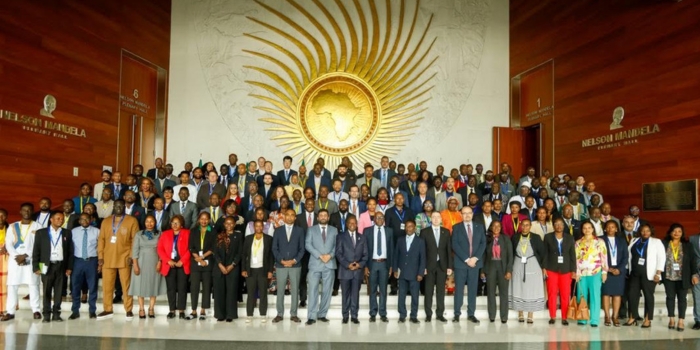FOKABS at African Carbon Market Conference
For African countries, trading of carbon credits represents an opportunity for economic development, job creations, access to climate finance and a driver for change that can contribute to the global fight against climate change, the realization of the Aspirations of Agenda 2063, and the sustainable development goals.
It is against this background that the Africa Union Commission in collaboration with partners held African multi-stakeholder conference on Carbon Markets from 24 to 26 of July 2024 at the African Union Headquarters in Addis Ababa.
Objectives
The overall goal of the Conference is to provide a platform for the African continent to deliberate on carbon markets, the approaches and opportunities they present, the threats they pose and possible options the continent can explore, taking into consideration its circumstances.
Specific Objectives
- Promote knowledge sharing and awareness: Enhance understanding of carbon markets, their potential benefits and challenges in the African context.
- Facilitate dialogue and collaboration: Foster open dialogue and collaboration among diverse stakeholders, including governments, businesses, civil society organizations, local communities, women and youth groups, who are befitting from existing carbon market projects.
- Identify opportunities and solutions: Explore opportunities for developing carbon markets that are tailored to Africa’s unique needs and contribute to its sustainable development objectives.
- Build consensus and recommendations: Build consensus on key issues and develop practical recommendations for policymakers and market actors to establish effective carbon market mechanisms.
The conference brought together: (i) Government representatives from AU Member States (Experts from ministries responsible for Biodiversity, Climate Change, Energy and Finance) (ii) Representatives of Regional Economic Communities (RECs) (iii) Private sector entities, including businesses and financial institutions (iv) Civil society organizations (CSOs) (v) Representatives from Indigenous Peoples and Local Communities (IPLCs) organizations (v) Academia and research institutions (vii) Women and youth groups and (viii) partners.
Fokabs was represented by Prof. Kalame Fobissie, who moderated a session on “Africa’s Carbon market opportunities and financing strategies” and also made a presentation on “Lessons from carbon market projects in African countries (Benin, Cameroon, DRC, Ethiopia, Ghana, Kenya, Madagascar, Rwanda, South Africa, Tanzania and Uganda). His presentation also discussed private sector companies involved in the carbon trade in Africa as well as the big buyers of carbon credits that are generated from Africa. Key lessons learned so far, we categorised under:
- Community engagement: local participation and capacity building.
- Equity and fairness among stakeholders including IPs and LCs
- Sustainability of the project results beyond the payment period.
- Monitoring and verification: accurate data collection and third-party verification.
- Correct verification, transparency, and Carbon market integrity.
- Financial sustainability and access to diverse funding sources.
- Biodiversity and other co-benefits generated by Carbon projects.
- Policy and regulatory frameworks that support C markets and align with national goals
- Complex requirements and resource intensive administrative process.
- Adaptive management including learning and iteration.
- Market dynamics and trends and certification standards.
- Integrated land use planning and policies.

